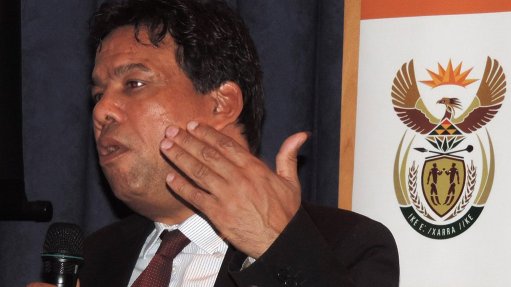
DTI director-general Lionel October
The establishment of a free trade zone between Kenya, Egypt, Nigeria and South Africa (Kensa) – the four largest economies on the continent – will drive intraregional trade and exports.
Speaking at a Team Export South Africa workshop in Midrand, on Tuesday, Department of Trade and Industry director-general Lionel October explained that the idea of a Kensa free trade zone arose from the need for greater intra-Africa trading, which is currently below 15% of its trade.
He noted that Europe’s intraregional trade stood at about 60% to 70%, with Germany only exporting about 30% of its goods outside Europe.
“That’s the reason we are poor as a continent; when we buy from [overseas countries], the money leaves the continent, but if it stays within the continent, it develops the capacity to buy,” he noted.
Further, October said trade on the continent was still too slow.
He further pointed out that the playing field in intraregional trade needed to be levelled, as South Africa was exporting about R8-billion of its manufactured and agroprocessed goods to Kenya, but only importing R200-million worth of goods from that country.
“We are working on [establishing] the free trade area, which will hopefully be concluded by the end of the year,” he added.
ECONOMIC BRIGHT SPOT
October singled out the manufacturing sector and associated exports as an economic "bright spot" in the “gloom” of the current economic situation.
“In the second quarter, we were saved from a technical recession when the manufacturing sector grew 8%.
“We aren’t out of the woods yet, but we are laying a basis. Before you can export, you must produce. Industrial strategy needs to lead our trade policy,” he added.
October said that even the most embattled manufacturing sectors, such as the textile and footwear industries, which had suffered significant job losses in recent years, were experiencing an improvement.
He said that the R25-billion investment in the automotive industry, “now a common story”, was also an example of how the manufacturing sector in the country has been revived.